From Russia to Croatia: The Young Expat Experience
May 21, 2021 - Four Russian girls moved from the two biggest cities in Russia to Zagreb and Split and shared their experience of living here. A look at their experience from Russia to Croatia.
Four girls including the author of this article collect their experiences from a long-term stay in Croatia and compare them with life in Russia. Three of us are from Moscow, one is from Saint-Peterburg. Two of us have lived in the biggest Russian cities since they were born, two moved from a little town in Siberia and the capital of Kyrgyzstan (ex-USSR). The girl who arrived first spent more than a year in Croatia. The girl who arrived last spent 6 months here. Dana, a project manager, (27) and Daria, an IR-specialist and human rights activist, (28) are based in Zagreb, while Nellia, an English teacher, (25) and Anastasia, a journalist, (25) live in Split.
The Weather
"The weather is great. I'd like to live here all the time," Daria living in Zagreb says. In comparison with average temperatures in the big cities in Russia, the weather in Croatia is much warmer and a lot sunnier. In Split, we have an even better perspective, because here we enjoy all the benefits of a Mediterranean climate favorable to health and good mood as well. But on the Croatian coast, there are a lot of winds, it's much stronger than in Moscow. When the temperature in Split is + 2-3°C degrees above zero and the 'bura' blows, the cold north-eastern wind from the Velebit mountain chain, it feels colder than - 10°C degrees and no wind in Moscow on the same say! For example, I remember exactly such a situation on 26 January.
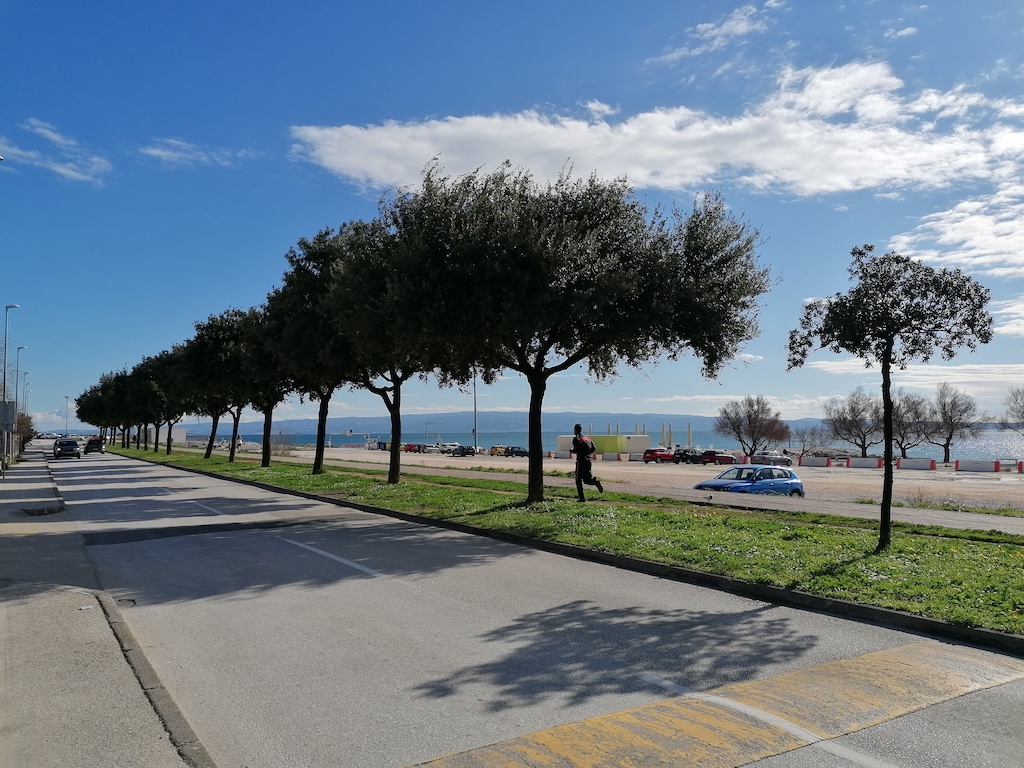
Other times we know from our sisters it was hotter in Moscow than in Split on 15 April or, for instance, on 18 May, i.e. about +31°C in Moscow versus +23°C in Split. But in general, during a Moscow spring, this kind of heat longs several days and in Split, it comes as stable warm weather. If you live here for a long period time, you'll agree that it's warmer here than in Russia!
I've never complained about the summer heat. For sure it's taken easier here between a sea and mountains than in Moscow among skyscrapers. But for people from the northern regions of Russia, summer in Croatia is quite challenging. Dana shares that during summer in Zagreb, she rarely leaves the house before 6 pm, because it is 38°C outside. Fortunately, she works remotely.
Food and supermarkets
Food talk among us hasn't identified anything special as well as problematic. A lack of plenty of dairy products we have in Russia probably contributed to Dana's cultural shock as she'd just moved to Croatia. But as soon as she found that the Croatian item 'svježi sir' (fresh cheese) is quite similar to the cottage cheese we often eat for breakfast in Russia, it isn't a problem anymore. Nellia who adheres to healthy food, was pleasantly surprised that in Split it costs less for her. She also had no difficulties finding components of her nutrition in local shops, like her favorite Russian grain 'grechka' (buckwheat) in the Tommy supermarket down the street, fresh vegetables at the open market, chicken sausages in the Purex shop close to the open market, etc.
We have a contentious relationship with the Croatian open market. From one side, even my first walk along its trading rows was very sobering. I started thinking about seasonal products again, I started favoring local products. When you live in a metropolis for a long time, you completely forget that salad with cucumbers and tomatoes is not really a winter dish. In Moscow, you have everything imported from everywhere year-round. On the other side, I can understand my friends from Zagreb who usually buy vegetables and fruits in the supermarket. If you live far from the open market, it probably won't be a part of your routine. If you have a fixed schedule and work in the mornings, the open market is also not your sort of thing, because it closes early. Nellia and I are indeed fortunate to live in 5 minutes from the open market in Split.
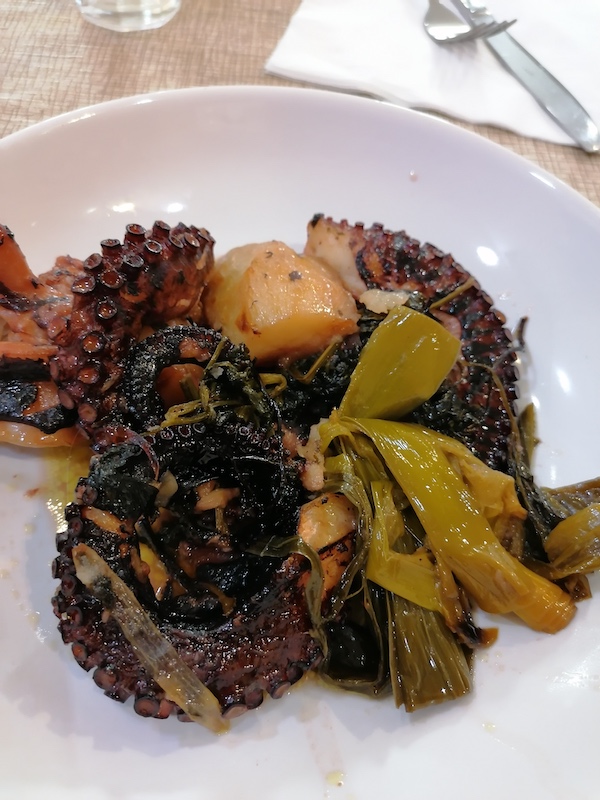
Concerning dishes and recipes, we are not really in Croatian cuisine. All of us work and cook for ourselves so that we prefer easy dishes which can be cooked fast. In fact, we've noticed that we began to cook more Russian dishes here than in Russia, because it just takes less time to cook what you've already cooked a hundred times. However, when we go to eat outside we always favor Balkan/Croatian/Dalmatian cuisine. We stand united in our love of 'burek' in everyday life. When we go to a restaurant or visit our Croatian friends, I've already got my TOP-3 favorite dishes: 1. 'hobotnica ispod peke', 2. 'Dalmatinska pašticada', 3. 'bakalar na crveno'.
Coffee and cafes
A handbook for expats that our host organization sent to Nellia and me before we arrived in Split mentions: "Everywhere in Croatia coffee drinking is a ritual. In Split, it's a way of life. In Split, people drink coffee 5 times a day," said our supervisor as we just arrived. Therefore, the two of us were prepared for coffee drinking. Daria had been living in Serbia for a year before she moved to Croatia, so she also knew about the Balkan way of coffee. For Dana, it showed up unexpectedly. It had an especially strong effect in light of the fact that she doesn't drink coffee at all. In Russia, we usually drink tea, although coffee consumption grows because of globalization.
Dana managed to find a solution. When they go to a cafe with friends, she orders hot chocolate in winter and orange juice in summer and likely tries to sip it slowly. "It sounds like a kind of stereotypical anecdote for my friends in Russia, however, it's true. Once I saw a guy drink coffee for literally 3 hours!" Dana remembers. My observed record was about 2 hours of coffee drinking, but I know for sure that after it, my companion went to drink coffee with his colleague.
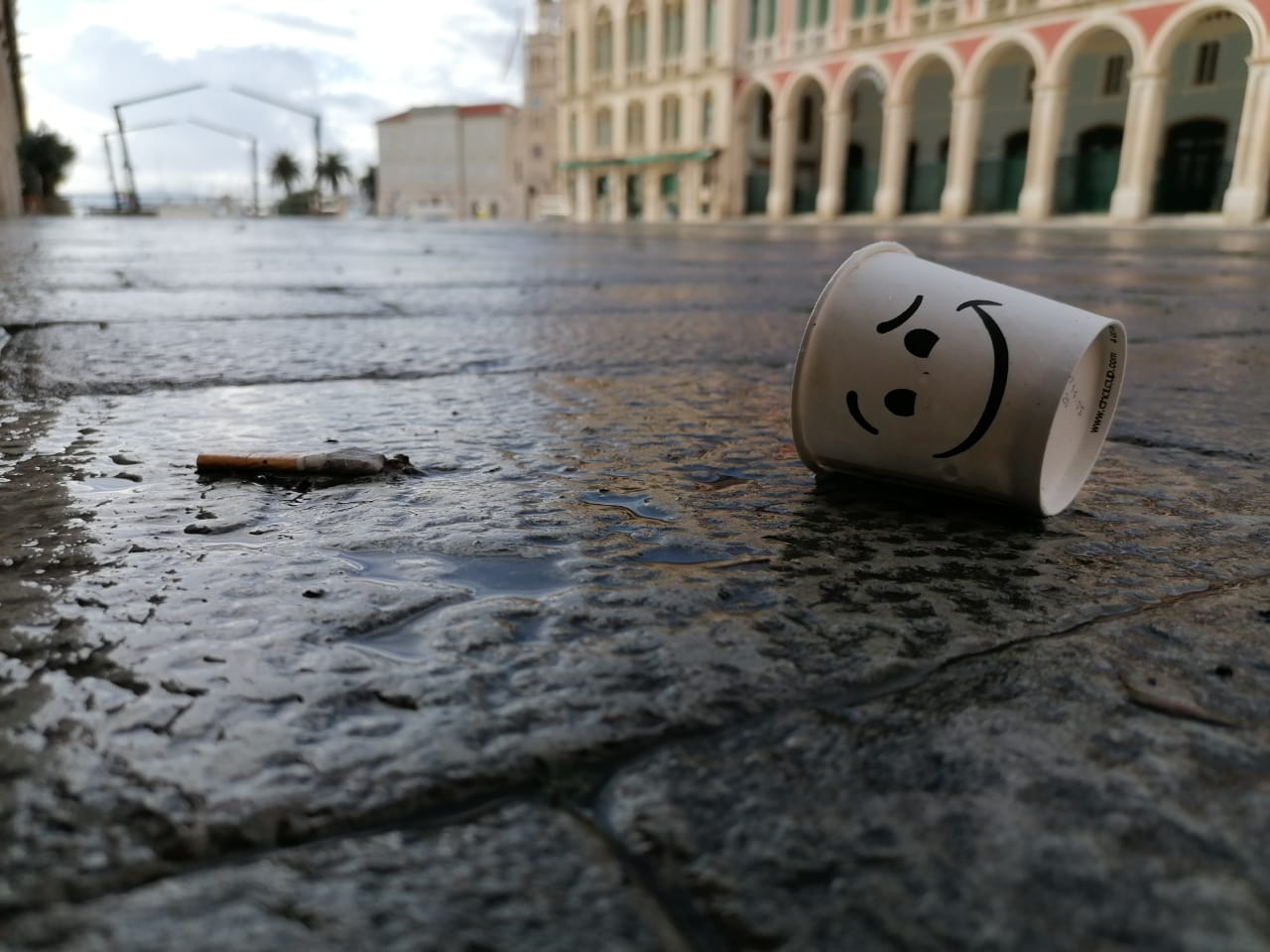
Seriously, we agree that coffee drinking is a charming and useful ritual. Daria shares that she likes to see the cafes full of people, even older people, as she goes to her office in Zagreb at 9.30 am. The remark about the older people is important because, in Russia, we don't usually go to cafes or public places and in a way, they're excluded from a part of social life. In Split, I really enjoyed how coffee rituals survived quarantine. People just took coffee to go and sat on the Riva. Actually, on Monday morning, there were so many people drinking coffee close to the sea as if nobody was working in this city.
Being a bit picky,, we'd say that there are many more trendy cafes in Moscow and Saint-Petersburg. There are cafes with a concept, cozy lights, interior design, a variety of sorts and methods for preparing coffee (machines, Chemex, cezve, etc.), plenty of amazing desserts that are perfectly matched with coffee. We don't lack it a lot, but in our opinion, it'd be a great growth zone. We want dessert!
Housing and household
We avoided a majority of housing problems because our organizations rent apartments and pay housing and communal services for us. For Nellia and me, the biggest discomfort was an absence of central heating during the winter. In Russia, we are used to heating inside the apartment, because the energy is cheap and the communal service works well. I used to wear only lingerie in my apartment in winter. And here in Split, I wore two t-shirts, a sweater or pullover. I slept under three blankets. Meanwhile, I never felt cold outside, because the winter in Split is warmer than in Moscow. The problem was that we lived in an old house, the only source of heating was the air conditioner in the room working 20/24 hours a day. We turned it off for 4 hours only to give it a technical break.
Split is a tourist city and quite often, an apartment owner asks you to leave at the very beginning of the tourist season, because they prefer to rent accommodation to tourists every day than to residents per month. It just brings more income. We were warned in advance, but anyway, moving from one flat to another creates some temporary inconvenience. A matter common for Zagreb and Split is that if you're one or two, it's much easier to find an apartment, than if you're a 4-5-6 group and everybody needs some private space.
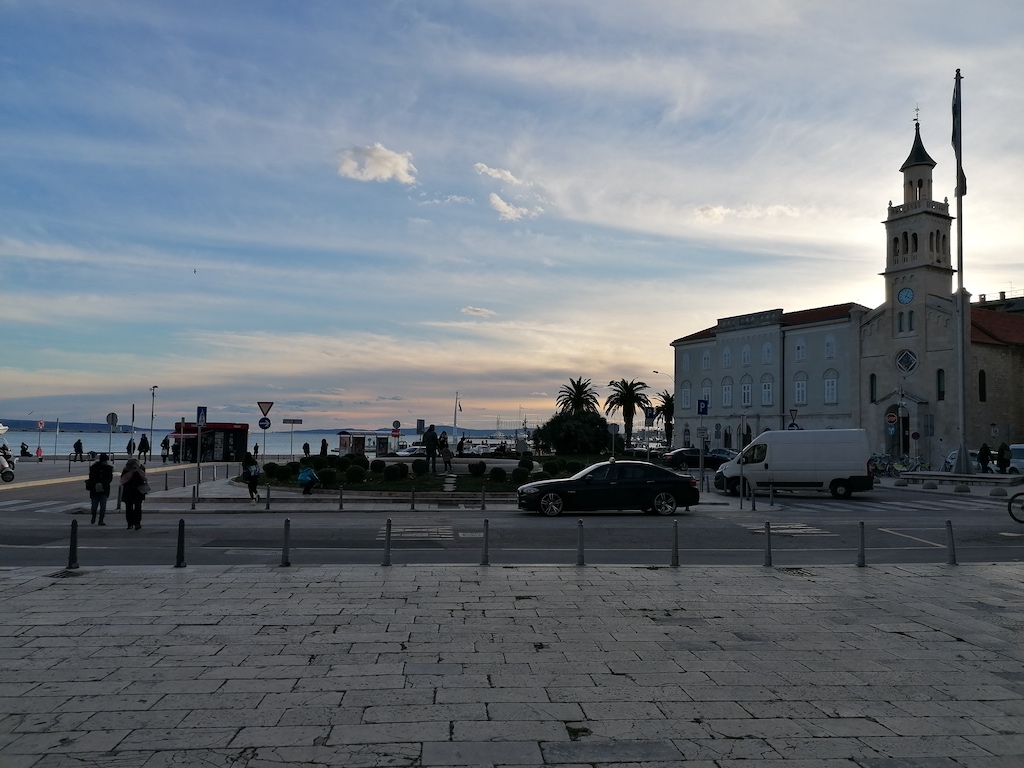
As for the household, we didn't meet any obstacles to find and buy things we needed. One funny story happened to me as I was buying a 'French press'. In my family, we always used this kind of press pot to brew tea. I mean to brew tea for a whole family, whereas for one person it's usually done in a cup. My mom's sent me Russian winter biscuits and a bag of herbal tea. Then I needed French press to brew the herbs and offer them to everybody in my community here. So, I went to the hardware shop nearby, I bought a French press and went back home. Then I realised that it didn't hold a piston in the upper position and went back to the shop to exchange it.
"I would like to exchange it because it doesn't work," I said. "How is it possible that it doesn't work? How does it actually work?" the seller wondered. "What is this thing intended for?" a second seller added to the conversation. "I know how it works, let me try!" a sales consultant shouted from the opposite side of the room and ran to us. For several minutes I've got a feeling that I'm not in southern Europe among the other Slavic nation who looks and speaks quite similar to my nation. I've felt like I'm among the indigenous people of Patagonia with whom I don't have much in common, and I've just re-invented the French press for them, thus they are now surprised and excited at the same time. In the end, all together we checked the boxes with French presses in the shop and looked for a stable piston in the upper position. I came out of the shop with the best working French press!
Services
First and foremost, our pain is mobile service and the Internet. It costs me here double more money (67-75 kn) than in Russia (~30 kn) for 200 minutes and 10 GB a month. While it's cheaper than the average Croatian pays, we have to use a kinda lifehack - we change SIM cards every month. Daria found this way first and then shared information with Nellia and me, otherwise, we'd pay three times more than in Russia. My boss kids with me that I'm a secret service agent every time I send him my new number. Dana adds that it's also annoying to buy 'bonovi' for the mobile account in the stores and pay commission, whilst you can do it online and without commission through your bank's mobile app in Russia.
Two of us had an experience with Croatian Post as we were waiting for our packages from Russia. From the Russian side, we have total trackability, we can watch it in the app of Russian Post. From the Croatian side, there isn't such trackability. Daria's parents forgot to put the number of the house on the package. As a result, Daria spent significant amounts of time trying to get her package from the local post office, sorting center, and Croatian customs. "The matter was, for instance, that once I asked different post officers in the same post office, they gave me contradicting info," Daria explains. It looked like there is no central informational system where every officer can check the info need.
Nellia and I consulted a lot with our local friends, but finally, we couldn't find a good beauty service for an affordable cost. Dana was the one who tried our medical insurance, and it worked nicely in Zagreb: there weren't queues, the doctors spoke fluent English. Daria probably uses delivery services more often than us, so we agree with her that it works and costs almost the same as in Russian cities.
Travelling and entertainment
Our concepts of travelling while you're based in Croatia differentiate a lot. The reason is that Dana had arrived before the Ccovid-19 pandemic began, and the rest of us came between the first and second waves of quarantine. "Well, travelling... I've been to Italy three times, several times to Vienna, once to Slovenia, to Serbia and Montenegro," Dana enumerates quietly as I ask her about travelling. I listened to her with my mouth wide open. From now it's complicated to imagine such freedom of travel without PCR tests and self-isolation. However, it seems according to Dana that in normal times, Zagreb is a good base to be near to these timeless popular travel destinations like Vienna and Venice.
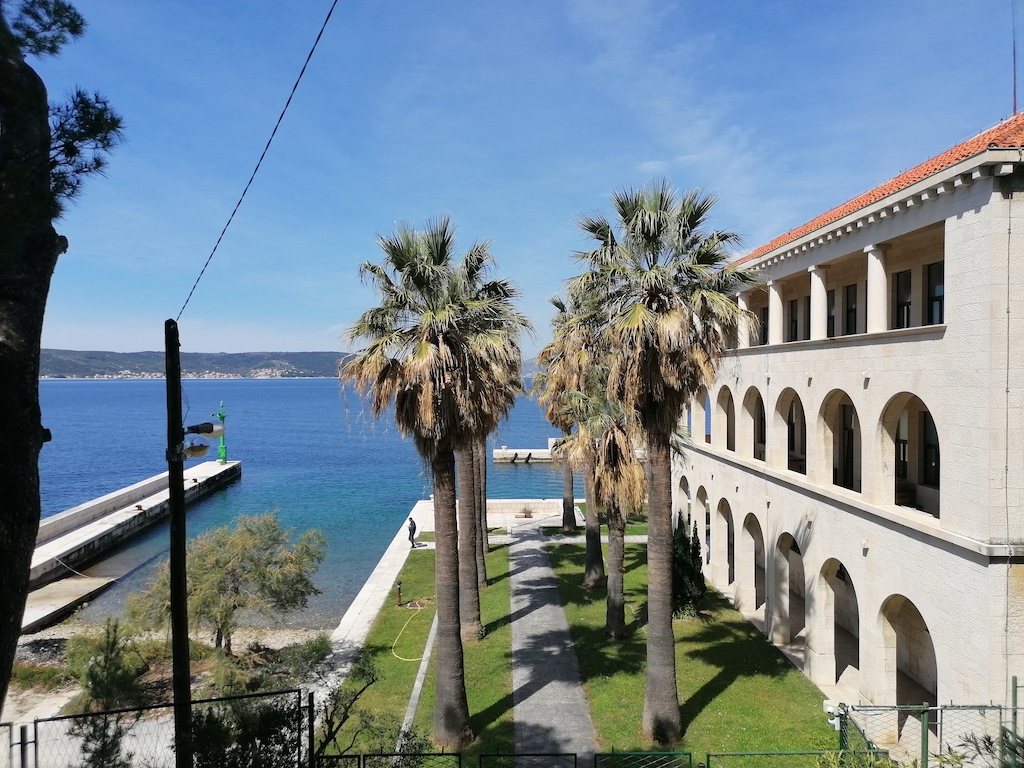
When I arrived in Split at the end of November, it sounded impossible even to go to Bosnia and Hercegovina. Quarantine challenged us, but eventually, we're grateful to it. We've had so many amazing trips around the country, we've seen fantastic views we'd never visit otherwise. I was impressed by the winter trip to Knin and to the source of the Cetina river. Nellia experienced a true authentic Dalmatian dinner and family atmosphere at her friend's house in Omiš. Together we discovered Dalmatian islands, and actually, I don't know what activity could be better. Daria would be a good promoting agent for Sljeme for everybody who asks about interesting destinations in the vicinity of Zagreb. She also could perplex even some locals telling about her hiking on Zeleni vir near Varaždin.
There was more entertainment before Covid as well. Dana managed to go to dancing classes in Zagreb. Although she didn't find classes of her favorite 'jazz funk' style she practiced in Saint-Petersburg, her Croatian friend introduced her to partner dancing and she liked it. To date, I've abandoned dancing, because all the classes were closed. Our experience with movies is quite similar in Zagreb and Split. We prefer old movie theaters - as Tuškanac or Zlatna vrata, which shows timeless classic and independent movies. There is a wide-ranging and international programme there. Tickets are cheaper than in Moscow or the usual cinema situated in some shopping mall here.
Daria warns expats about choosing a movie where the action happens in some highly cross-cultural circumstances as in 'The Mauritanian' she watched recently. The matter is that the original movie is in English, but in some moments characters speak their mother languages like French, etc. And in such moments you cannot understand anything, because all the subtitles are given in Croatian. However, this is not the majority, and movies in Croatia are very friendly to the non-Croatian-speaking public.
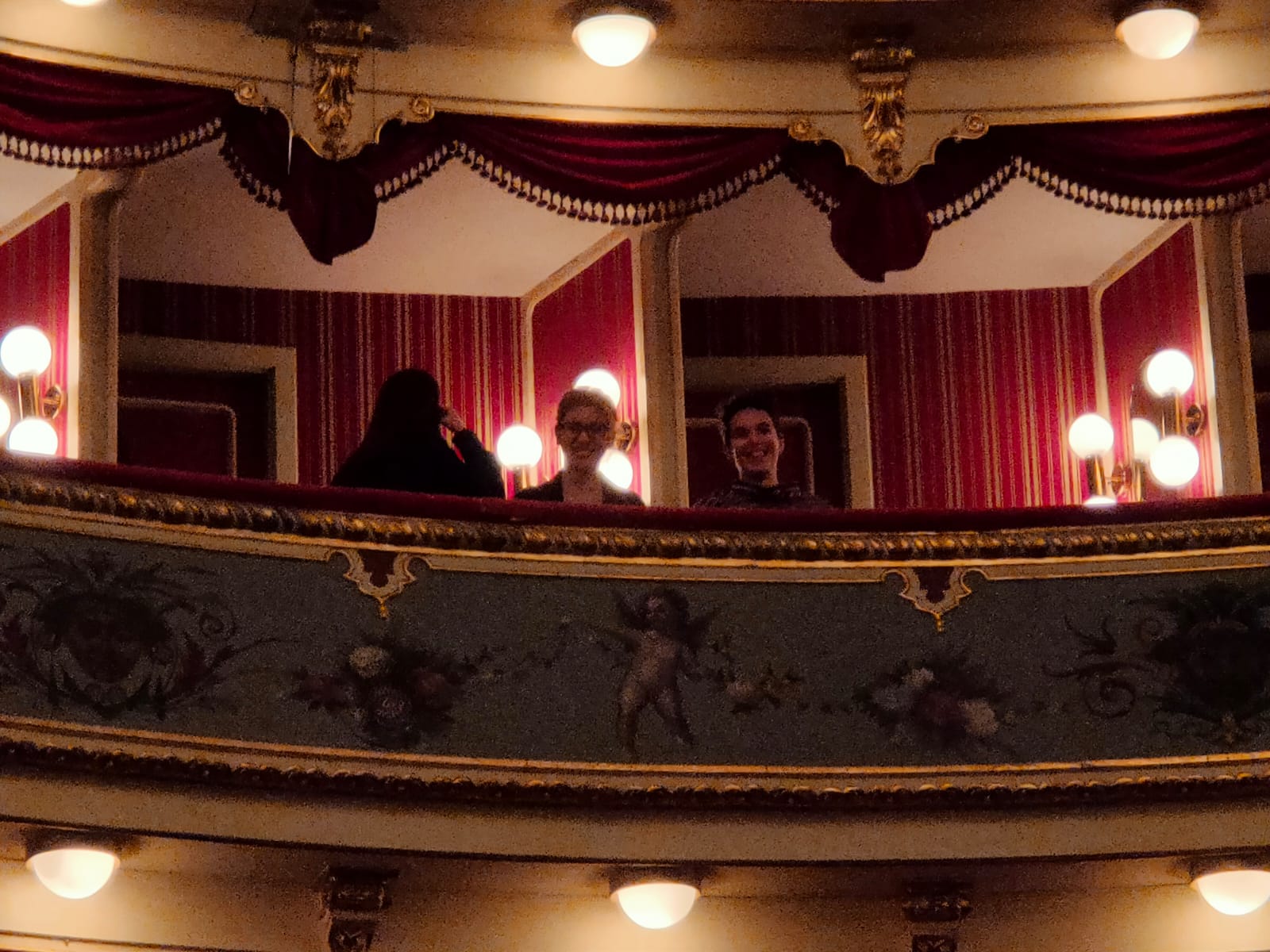
The situation is the opposite in the classic theaters. Shows are mostly in Croatian. Daria speaks Croatian, therefore she goes to a theater in Zagreb at least once a month. Meanwhile, we agree that if you're this Russian 'theater-goer', you'll for sure understand a plot, because our languages and repertoires intersect enough. So that, in this sphere being expat from other Slavic counties is an advantage. Another advantage is having a Croatian friend who will advise in choosing the show, because to manage it by yourself is not so easy.
Our Croatian friend from Split who studies in Zagreb said to us that theater is much better in Zagreb than in Split. Thus, we don't go to the theater in Split. In fact, with Nellia we tried the Swan Lake ballet at HNK (Croatian national theater) in Split. It was... I'm going to put this as delicately as I know-how, not what we expected to see with our Russian-classic-world-famous-ballet background! Here a ballet is a less disciplined and more relaxed art that is closer to modern styles of pop dancing.
Integration in the community
Since we went to Croatia through an EU-programme, our community from the very beginning consists mostly of expats. Of course, we communicate with a lot of Croatians at work. While quarantine measures are still in place, we meet Croatians not only at work, thus, I'd say now our community is mixed. We'd never tried purposely to find Russians here. Thanks to the programme, each of us have one Russian-speaking friend: I have Nellia, Daria and Dana had their friends from Ukraine and Belarus accordingly. Several times we met Russians, just for small talk. The fact is that we don't really need it much. We enjoy our international community. We've met a lot from the intercultural exchange. However, if we'd fancy it, it wouldn't be a problem to find a Russian community. Russian shop 'Ruske delicije' is situated in the center of Zagreb. You can always ask for Russians there. If you're used to social networks, it's even easier - a search on Facebook groups and Instagram hashtags works perfectly.
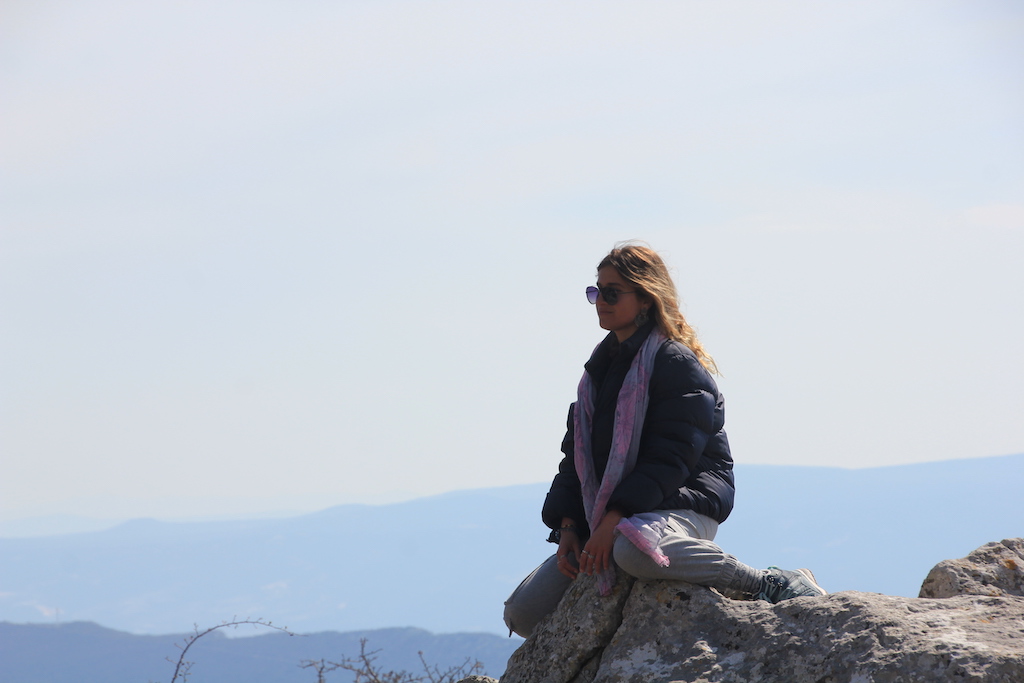
Half of us came here with knowledge of the Croatian language and definitely improved it with everyday practice. Half started to learn on the ground and reached a significant level of comprehension. For sure, it's easier to learn Croatian if you speak some Slavic language. When Nellia doesn't remember any word in Croatian, she just says the Russian word instead of it, and it often helps. However, Nellia and Dana recognise that we're not really motivated to bone up Croatian, as far as almost everybody in Zagreb and Split speaks English. I understand them. Only once I observed a seller who didn't speak English, it was in a sewing store - certainly not popular among tourists and foreigners! Nevertheless, I agree with Daria that if you plan to stay here for a long time, it worth learning some Croatian.
Pomalo
'Pomalo' that is a part of local mentality and a Croatian word for 'take it easy, 'hello', 'how are you, 'i'm fine, 'I'll do it tomorrow' affected our attitude to life. When Dana arrived in Saint-Petersburg after a year in Croatia, she noticed she became more patient seeing lines in the metro or people smoking in the corridors of the metro. Meanwhile, she supposes that Petersburg encourages initiative and entrepreneurship more than Zagreb, the lifestyle there is more dynamic. Nellia and I as well can barely imagine our years of hard studying and hard-working in the atmosphere of 'fjaka' (a Croatian word for siesta that can last infinitely) and 'pomalo'. But whereas we've already passed this hard period of life Moscow, we enjoy every morning in Split.
For more on travel in Croatia, follow TCN's dedicated page.
European Short Story Festival to be held in Zagreb, Hvar and Vis on 6-11 June
ZAGREB, 16 May, 2021 - The 20th European Short Story Festival will be held on June 6-11, and the event will be held both online and live in Zagreb and on the islands of Hvar and Vis.
US authors Paul Auster, Siri Hustvedt, Lydia Davis and Lorrie Moore will discuss this year's festival topic, "Islands", with Croatian authors.
The festival has so far taken place in Osijek, Beli Manastir, Hvar, Zadar, Rijeka, Split, Dubrovnik, Pazin, Varaždin, Šibenik and other cities.
"We are exploring topics that are more relevant than ever - what kinds of isolation are we faced with and how do we overcome separation in a post-pandemic world? Is travel really necessary? Is technology a cure for loneliness or does it contribute to it? Is each one of us an island and what are the new languages the human need for closeness is beginning to express itself in?" reads an announcement of the festival.
In addition to online sessions with the four US authors, the festival will also feature live meetings with a number of regional and domestic authors.
The festival is organised by the Croatian Writers Society, with the help of the Culture and Media Ministry, the Zagreb City Office for Culture and partner cities, as well as a number of cultural institutions and foreign embassies in Croatia.
For more news about events in Croatia, follow TCN's dedicated page.
For more news about Croatia, CLICK HERE.
New Lynx Emil Arrived at Velebit Nature Park From Slovakia
May 16, 2021 - Great news for wildlife in Croatia, as the Velebit Nature Park welcomed a new lynx Emil. The wild cat came from Slovakia and thus joins nearly 40 other lynxes that inhabit the park.
As turistickeprice.hr reports, Velebit Nature Park has become richer for one beautiful cat: Emil! The new lynx arrived from Slovakia and immediately rushed out of the transport box into the Velebit area. It's a lynx, the largest European cat, but the survival of this species in the Dinaric mountains is endangered due to inbreeding. After extinction at the beginning of the 20th century, the Dinaric lynx population was re-established in 1973 by the settlement of six animals from the Slovak Carpathians in Slovenia.
The adult male lynx was caught in the Slovak Carpathians and spent two months in quarantine to make sure he arrived in Croatia healthy and with the necessary antibodies to the rabies virus. It's out of the shipping box released on Apatišan, near Krasno. In accordance with the epidemiological measures, he was accompanied by a small number of spectators, among whom a special place was taken by students from the Elementary School Krasno.
‘‘Emil is the third lynx we are releasing in the Velebit area. Last year, in the Paklenica National Park, we released Alojzije, who established the terrain in the area of the municipality of Sveti Rok, and the lynx Pina, whose fate we, unfortunately, do not know. Based on the data from the photo traps, we estimate that there are about 40 adult lynxes on Velebit, so we hope that Emil will not have any problems finding a partner’’, said the director of Velebit Nature Park, Ana Brkljačić.
All lynxes present today in Slovenia, Croatia, and Bosnia and Herzegovina are descendants of these six lynxes. Nearly 50 years of breeding close relatives without contact with lynx from other populations, resulted in genetic disorders and the only solution for survival was the re-import of lynx from the Carpathians. This is exactly what the international team of experts gathered in the LIFE Lynx project, co-financed by the European Commission, is doing. In the last three years, he has been to Slovenia and Croatia, both inhabited by a total of 13 lynxes from Slovakia and Romania, and the first descendants of inhabited males and local females have already been recorded, thus stopping inbreeding.
The new lynx found a new home in the Velebit Nature Park, which is just one of the 12 natural parks in Croatia, and you can learn more about them in Total Croatia's Guide to National and Natural Parks in Croatia, HERE. Now you can find Total Croatia articles in your language!
For more news, follow TCN's dedicated page.
Ministry: Number of Arrivals on Election Day Similar to Two Previous Sundays
ZAGREB, 16 May 2021 - On election day, between midnight and noon, 892 Croatian nationals entered Croatia on the grounds of compelling personal reasons, which is similar to the average number of entries last Sunday and two weeks ago, the Ministry of the Interior said on Sunday.
On 2 May, 724 Croatians entered the country and on 9 May 683 did so.
The ministry said that delays on some border crossings on the border with Bosnia and Herzegovina and Serbia were due to passengers returning after a long weekend in some EU member-countries, and passenger traffic was also more intense on border crossings between Croatia and Slovenia.
With regard to inquiries about the arrival of Croatian nationals with the right to vote in local elections, regardless of the country they come from, the ministry recalls that the decision currently in force that bans or restricts border crossing defines exceptions in cases of compelling personal reasons, the right to vote being one of them.
It notes that persons travelling for compelling persons reasons must not stay in Croatia for more than 12 hours and that if they do not leave within that period, they are subject to epidemiological restrictions defined by the decision in force.
The ministry recalls that during their stay in Croatia all passengers, regardless of their category or the country they come from, are obliged to comply with general and special recommendations and instructions by the Croatian Public Health Institute.
For more news about COVID-19 in Croatia, follow TCN's dedicated page.
For more news about Croatia, CLICK HERE.
Italian Open: Nikola Mektic and Mate Pavic Win 6th Joint Title!
May 16, 2021 - Nikola Mektić and Mate Pavić have done it again, this time with a title at the Italian Open!
Croatian tennis players Nikola Mektić and Mate Pavić won the ATP Masters 1000 tournament in Rome, defeating American Rajeev Rama and Briton Joe Salisbury 6:4, 7:6 (4) in the final.
Pavić and Mektić won the first set after 33 minutes of play thanks to a break in the fifth game which was enough for the 6:4 win. In the second set, neither side had a break and the decision fell in the 13th game, which was fantastically played by the Croats who quickly took a 6:0 lead. Their opponents saved four match points but failed to save the fifth and the celebration began for the Croatian duo.
??? Antalya
— ATP Tour (@atptour) May 16, 2021
??? Melbourne
??? Rotterdam
??? Miami
??? Monte Carlo
??? ROME
Mektic/Pavic are the @InteBNLdItalia champions! ?pic.twitter.com/ktMh1sZsNT
This year has been extremely successful for Nikola Mektić and Mate Pavić. They have played eight finals and have won six titles so far (Antalya, Melbourne, Rotterdam, Miami, Monte Carlo, Rome).
They reached the final in four Masters 1000 tournaments and have three titles. They have 37 wins and four losses this season.
To follow the latest sports news in Croatia, follow TCN's dedicated page.
To get more news about sports in Croatia, CLICK HERE.
NGO Says Elections Proceeding Peacefully, but with Numerous Voter Complaints
ZAGREB, 16 May, 2021 - The GONG election-monitoring NGO said that voting in Sunday's local elections by noon was relatively peaceful but with numerous complaints from citizens.
The complaints referred to violations of election silence, complaints regarding the work of electoral committees, and there were also inquiries about some polling stations that had been relocated and about the possibility of voting for people in self-isolation or people who are ill, GONG said.
The NGO said that in the first couple of hours after the opening of polling stations it received a dozen complaints about electoral committees asking voters if they wanted to vote only for mayoral candidates or for other slates as well.
"GONG informed local election commissions about this and they told us that this was not an instruction or an intentional act of discouraging voters. They noted that they had been informed of such cases and that they warned electoral committees that they should offer all voters all ballots," GONG said.
The NGO also asked the State Election Commission (DIP) to investigate text messages and messages on social networks in which the transport of voters from Bosnia and Herzegovina to Croatia's coastal town of Makarska is being arranged, and which also mention providing supporters of one political party with transport and lunch.
GONG also said that other complaints referred mostly to violations of election silence, primarily on social networks, and that it received a complaint from a political party saying that fake text messages were being sent to voters on its behalf. The case was reported to DIP.
DIP spokesman: Normal election day
DIP spokesman Slaven Hojski said that election day was normal with regard to complaints and reports of irregularities.
Most of the complaints refer to posts on social networks and violations of election silence, he said.
He noted that tension was running high among political parties which accused one another of doing something to compromise the other side.
The DIP spokesman also said that several text messages were blocked via the HAKOM regulator.
For more news about politics in Croatia, click TCN's dedicated page.
Local Elections: Turnout by Noon 15.47%
ZAGREB, 16 May, 2021 - A total of 15.47% of Croatians went to the polls in Sunday's local elections by noon, which is almost the same turnout as in the 2017 local election, when 15.98% of voters had voted by noon, the State Election Commission said.
The commission will release new information on the turnout at 5 pm.
The highest turnouts were reported in Lika-Senj County (21%), Dubrovnik-Neretva County (19%) and Varaždin County (17.4%).
Sisak-Moslavina County, struck by a strong earthquake on 29 December, also had a rather good turnout, of 16.7%.
Of the four big cities, the highest turnout was reported in Zagreb (15.4%), followed by Split (14.4%), Osijek (13%) and Rijeka (12.4%).
A total of 3.660 million voters have the right to vote in elections for local self-government units and they can do so at 6,572 polling stations.
Voters will decide about the make-up of 425 municipal and 127 city councils, 20 county assemblies and the Zagreb City Assembly. They will also elect mayors and county heads, some 70 deputy mayors and county heads from the ranks of ethnic minorities and about a dozen deputy officials from the ranks of the Croat people in the municipalities where Croats are in the minority.
Polling stations are open from 7 am to 7 pm, until when election silence is in force.
For more information about politics in Croatia, follow TCN's dedicated page.
Markotić Believes Epidemiological Restrictions will be Relaxed
ZAGREB, 16 May, 2021 - The head of Zagreb's "Dr. Fran Mihaljević" Hospital for Infectious Diseases, Alemka Markotić, believes that epidemiological restrictions will be relaxed and that gatherings with a larger number of people will probably be allowed but stresses the importance of vaccinating as many people as possible.
The number of new infections has dropped over the past week at a rate of almost 40%, the number of hospitalisations and patients on ventilators has been falling as well, but the clinical symptoms of the hospitalised patients are still rather serious, Markotić said in an interview with Croatian Television on Saturday.
"We must take care not to destroy the current positive trends, but I believe that epidemiological restrictions will gradually be relaxed," she said.
She noted that a fourth wave of the epidemic was possible in the autumn, noting that among those who were being hospitalised were also young and middle-aged people, between 50 and 60 years old.
Asked if she believed that Croatia would achieve the plan of having 55% of the adult population vaccinated by the end of June, Markotić said that the vaccination trends were excellent.
"We all sincerely hope that we will manage to reach that percentage. That also depends on the health system, which is doing its best to help step up the vaccination process," she said.
She also commented on the need for an additional campaign to encourage people who are still undecided about whether to get vaccinated or are waiting for the autumn to do it.
"It is already clear that the vaccine provides protection for a period of up to six months, or up to a year. To wait for the autumn means to expose yourself and people close to you to the risk of infection, even if it is only a less serious form of the disease. Even mild cases of the disease have serious side effects, not to mention the possibility of returning to a normal life. The tourist season is ahead, we should not allow a repeat of last year and the tourist season ending as early as 15 August. How we will do this year is up to us," Markotić said, calling on all to get vaccinated as soon as possible.
Asked when the pandemic could end, Markotić said that epidemiologists expected it to be put under control by next spring on the condition a large share of the world population gets vaccinated.
For more news about COVID-19 in Croatia, follow TCN's dedicated page.
"Sa(n)jam Knjige u Istri" Book Fair to be Held in Pula on 4-13 June
ZAGREB, 16 May, 2021 - The 26th "Sa(n)jam knjige u Istri" book fair will take place in Pula, Istria County on 4-13 June under the slogan "Where are we?", organisers announced earlier this week.
This year's edition will overflow with poetry and music, organisers said, thanks to 15 poets led by Petar Gudelj who will appear before the public accompanied by musicians led by jazz trumpeter Branko Sterpin.
The fair will feature the traditional "Breakfast with the author" programme and a new one, called "The new faces of Pula".
Participating in the fair for the first time are writers Svetislav Basara, Želimir Periš, Ivana Bodrožić, Magdalena Blažević, Tanja Stupar-Trifunović, Ena Katarina Haller and Ivica Đikić.
Another novelty will see Zagreb Croatian National Theatre actors reciting the verses of contemporary Croatian women poets.
For more news about lifestyle in Croatia, click TCN's dedicated page.
For more news about Croatia, CLICK HERE.
Zagreb Book Festival to be Held on 24-28 May
ZAGREB, 16 May 2021 - The Zagreb Book Festival (ZBF) will be held from 24 to 28 May at the Urania venue in Zagreb, and the seventh edition of the ZBF will be held under the slogan "I want your story!".
This year's festival features Jul Maroh, Nebojša Lujanović, Vedrana Rudan, Korana Serdarević, Monika Herceg, Boris Jokić, Dino Pešut, Ece Temelkuran, Robert Torre, Zoran Ferić, Sena Puhovski, Barbara Matejčić, Rujana Jeger and some other writers.
Since its founding in 2014, the Zagreb Book Festival has been designed as an annual literary event with the clear goal of encouraging reading and critical thinking.
"After six successful editions, it has become an unavoidable point on the cultural and literary map of Zagreb and beyond," the festival says on its web site.
This year's program includes an international project called "Every Story Matters" which "raises awareness of the role of literature, especially for children and youth, in building an open democratic society. Although European society implies diversity, it is not in fact reflected in all its segments: literature and the book world are still quite homogeneous in many respects."
For more news about lifestyle in Croatia, follow TCN's dedicated page.
For more news about Croatia, CLICK HERE.


